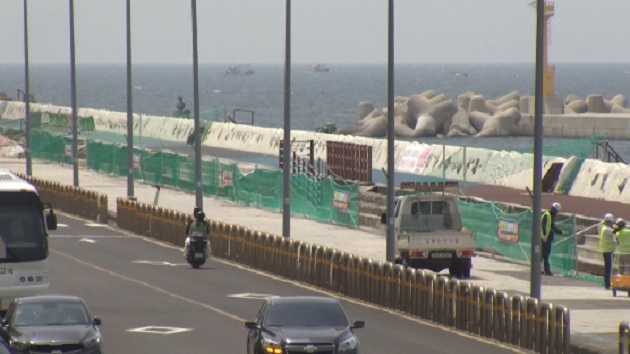
(탑동) Tapdong Square in Jeju City and nearby walkways have been temporarily closed for the first time in 30 years.
Jeju City has decided to do that to prevent the spread of the coronavirus as people eat and drink there. The office is reviewing plans to permanently restrict drinking at the square.
Mike Laidman reports.
Report
Net walls measuring 1.5 meters high have been installed around (탑동) Tapdong Square in Jeju City. The area has been temporarily closed.
Announcements about the closure are being made every hour between 8 AM and midnight.
< Announcement >
Tapdong Square and walkways are temporarily closed. Violators will be fined up to 3 million won.
Jeju City has closed (탑동) Tapdong Square and the walkways nearby to prevent the spread of coronavirus, as these are popular spot for people to gather to eat and drink.
This is the first time in 30 years, since the area was first reclaimed from the sea, that Tapdong Square has been closed.
The temporary closure applies to a 1.38-kilometer long route that includes Tapdong Square itself, the seafood restaurant street, and the breakwater near the Jeju Ramada Plaza Hotel.
The areas will remain closed until July 14 and public workers are making patrols 24 hours a day.
Over the next couple weeks, the closed sections and times they are closed will become flexible, based on the then-current COVID-19 situation.
However, as the entrance for the haenyeo divers cannot be restricted and is available and accessible through an opening in the breakwater, the effectiveness of the closure is being put into question.
But the restriction is not truly solving the problem. Instead of Tapdong Square, people are choosing to gather at (이호) Iho Beach and other similar places to eat and drink.
Thus, Jeju City is considering permanently banning drinking at the square.
The revised National Health Promotion Act allows local governments to designate “no drinking areas” and to fine violators.
Revisions and new legislation related to laws to designate “no drinking areas” are expected to be made next year.
Mike Laidman, KCTV





